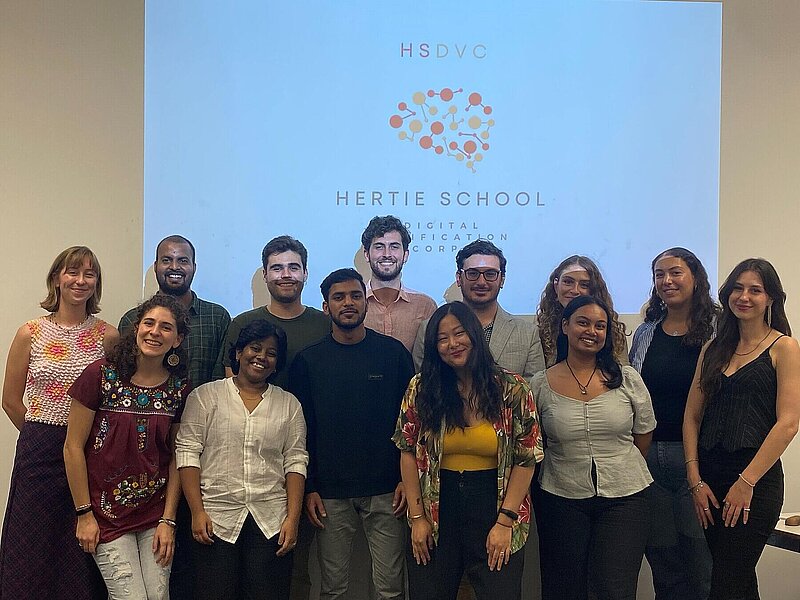
Students and faculty engage in university network that analyses open-source information to investigate human rights violations.
The Hertie School is the newest member of the Amnesty International Digital Verification Corps (DVC) – a network of universities that collaborate with Amnesty International in human rights research based on collective intelligence. The university, represented by its Centre for Fundamental Rights and Centre for International Security, is the sixth member of the DVC globally and the first one in the European Union. Other members of the DVC are the University of Berkeley, the University of Cambridge, the University of Essex, the University of Ibero and the University of Pretoria.
Professors Başak Çalı from the Hertie School’s Centre for Fundamental Rights and Anita Gohdes from the Centre for International Security are the faculty leads that will support the student initiative.
“I am proud of this student initiative. Open-source investigations of human rights violations and war crimes are urgently needed to fight impunity and establish truth," said Başak Çalı, Professor of International Law.
“Contemporary conflicts and crises require careful documentation, and being able to verify and investigate digital evidence lies at the core of fact finding and accountability. I’m delighted to support our students in contributing towards this important work and in building their skillset,” said Anita Gohdes, Professor of International and Cyber Security.
Hands-on training for Hertie School students, profound analysis for Amnesty International
“We are delighted to have the Hertie School joining the Digital Verification Corps, bringing their research expertise in fundamental rights, emerging technologies and data science to our cohort of universities. We look forward to empowering more German and international students to work on cutting-edge initiatives that use technology to advance human rights globally,” said Marija Ristic, Manager of the DVC at Amnesty International.
Pablo Maristany de las Casas, founder and coordinator of the Hertie School DVC, added: "I'm proud to have established the Hertie School Digital Verification Corps with support from both my university and my practice partner, Amnesty International." His experience with the organisation between July 2022 and June 2023 led him to establish the initiative in the second year of his Master of International Affairs. "In a world where human rights defenders act in ever-shrinking spaces and under increasingly authoritarian governments, digital investigations have never been more crucial. Hertie students are now able to join the fight for human rights alongside a prestigious network of universities, led by Amnesty. They will gain invaluable skills and experience in a rapidly expanding field such as open-source intelligence, which the corpus is based on. I'm excited to coordinate this initiative and look forward to our accomplishments."
About the Digital Verification Corps
The Digital Verification Corps (DVC) was established in 2016 to help train the next generation of human rights researchers in the tools and skills needed to take advantage of the overwhelming amount of digital content that exists in the world today. In November 2019, the DVC won the Times Higher Education Award for International Collaboration of the Year. More than 100 students annually contribute to the human rights research of Amnesty International and its partners – from the reactive work on conflicts like Sudan or Ukraine, to long-term projects exposing police violence globally, airstrikes causalities in Syria and pushbacks at sea.
Those interested in hearing more about the Hertie Student Initiative, the work of DVC and main trends in human rights fact finding, can register for the Digital Investigations Summit, taking place on 15 September at bUm in Berlin.
More about our experts
-
Başak Çalı, Professor of International Law | Director, Centre for Fundamental Rights
-
Anita Gohdes, Professor of International and Cyber Security
